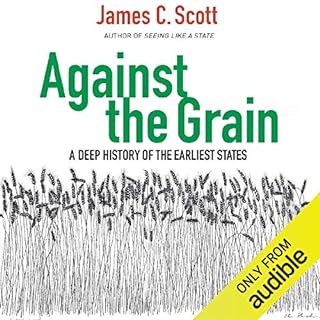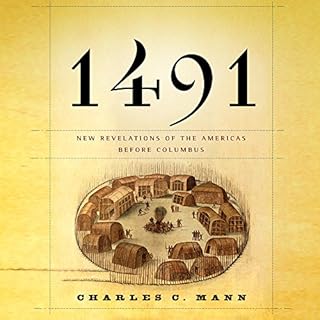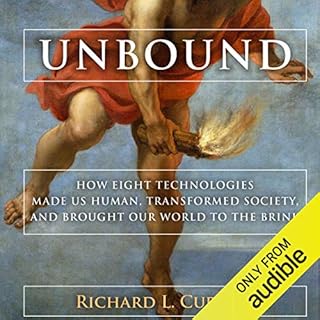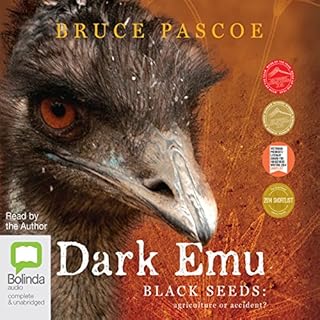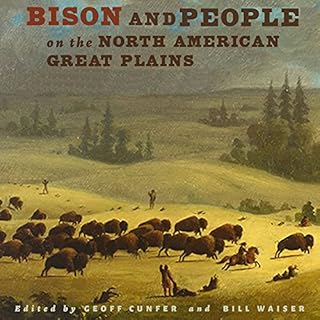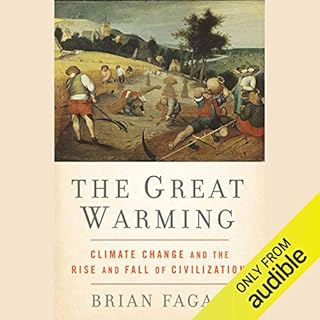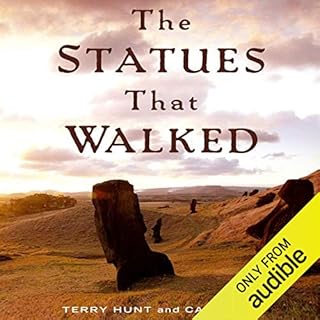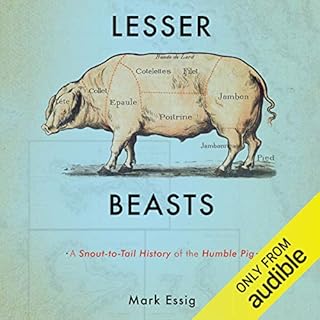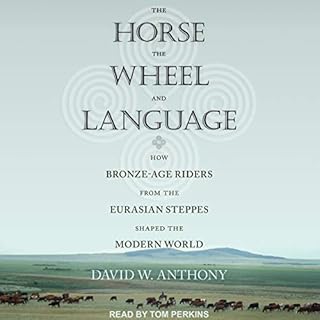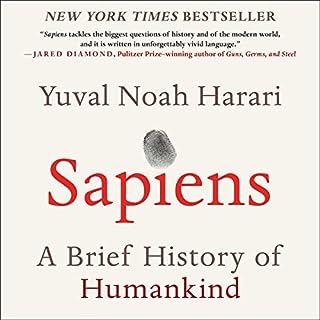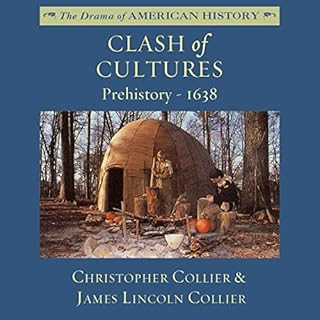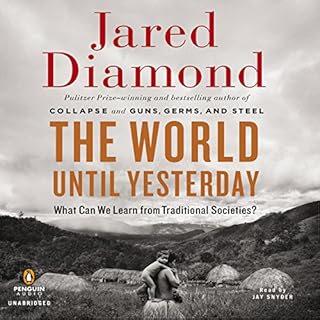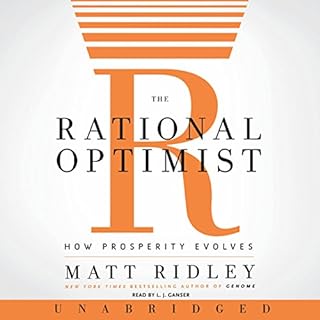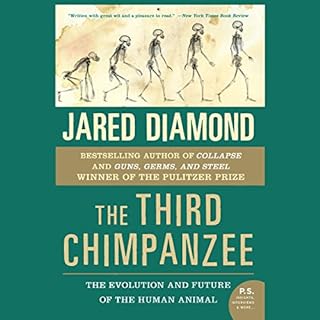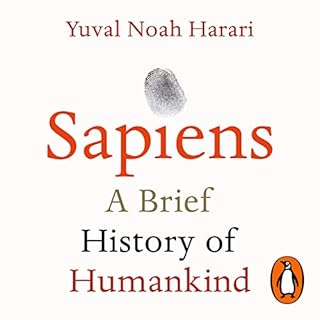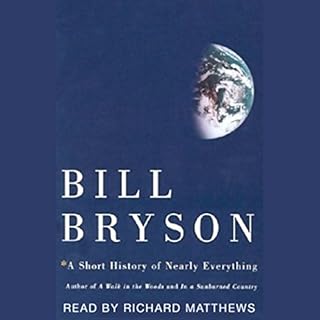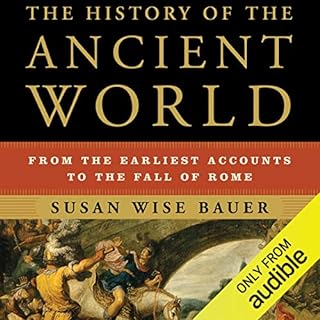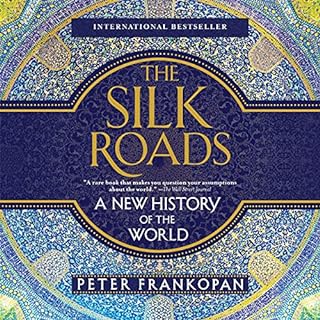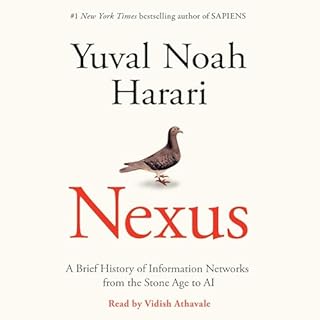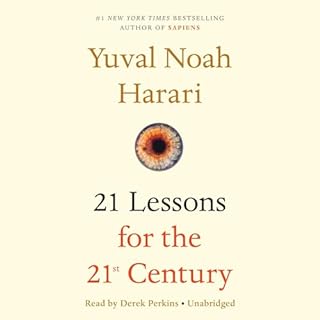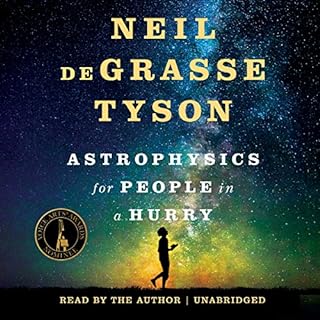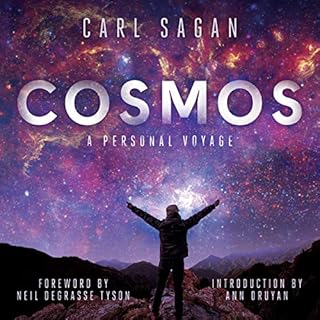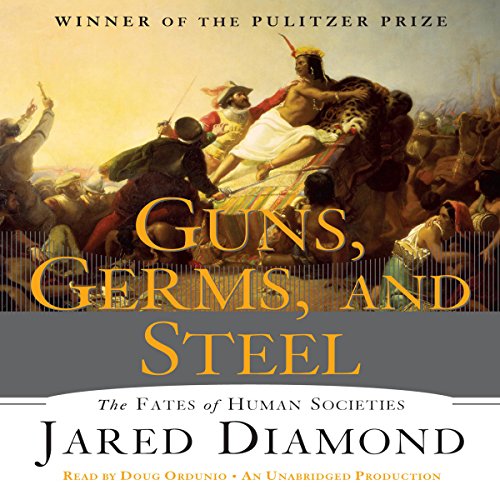
Guns, Germs and Steel
The Fate of Human Societies
Failed to add items
Add to Cart failed.
Add to Wish List failed.
Remove from wishlist failed.
Adding to library failed
Follow podcast failed
Unfollow podcast failed
$0.99/mo first 3 months
 Prime members: New to Audible?
Prime members: New to Audible?Get 2 free audiobooks during trial.
Buy for $22.50
No default payment method selected.
We are sorry. We are not allowed to sell this product with the selected payment method
-
Narrated by:
-
Doug Ordunio
-
By:
-
Jared Diamond
About this listen
Pulitzer Prize, General Nonfiction, 1998
Guns, Germs and Steel examines the rise of civilization and the issues its development has raised throughout history.
Having done field work in New Guinea for more than 30 years, Jared Diamond presents the geographical and ecological factors that have shaped the modern world. From the viewpoint of an evolutionary biologist, he highlights the broadest movements both literal and conceptual on every continent since the Ice Age, and examines societal advances such as writing, religion, government, and technology. Diamond also dissects racial theories of global history, and the resulting work—Guns, Germs and Steel—is a major contribution to our understanding the evolution of human societies.
©1997 Jared Diamond (P)2011 Random House
Featured Article: The 20 Best History Audiobooks You Never Heard in School
While history is by definition the study of the past, no subject tells us more about the present, or is as exciting to follow in contemporary times. The range of subgenres within history writing is huge. Some authors cover a massive scope, while others zoom in to examine tiny, overlooked elements in a new way. Unlike your history class of old, these selections don’t demand memorization of names and dates. Read on for the best in our catalog.
Related to this topic
-
Against the Grain
- A Deep History of the Earliest States
- By: James C. Scott
- Narrated by: Eric Jason Martin
- Length: 8 hrs and 35 mins
- Unabridged
-
Overall4.5 out of 5 stars 869
-
Performance4.5 out of 5 stars 723
-
Story4.5 out of 5 stars 718
Why did humans abandon hunting and gathering for sedentary communities dependent on livestock and cereal grains and governed by precursors of today's states? Most people believe that plant and animal domestication allowed humans, finally, to settle down and form agricultural villages, towns, and states, which made possible civilization, law, public order, and a presumably secure way of living. But archaeological and historical evidence challenges this narrative.
-
4 out of 5 stars
-
World without Women
- By Paul Richards on 04-28-18
By: James C. Scott
-
Collapse
- How Societies Choose to Fail or Succeed
- By: Jared Diamond
- Narrated by: Michael Prichard
- Length: 27 hrs and 1 min
- Unabridged
-
Overall4.5 out of 5 stars 1,708
-
Performance4.5 out of 5 stars 1,473
-
Story4.5 out of 5 stars 1,465
In Jared Diamond’s follow-up to the Pulitzer-Prize winning Guns, Germs and Steel, the author explores how climate change, the population explosion, and political discord create the conditions for the collapse of civilization. Environmental damage, climate change, globalization, rapid population growth, and unwise political choices were all factors in the demise of societies around the world, but some found solutions and persisted.
-
4 out of 5 stars
-
Jared Diamond Downs You in Explanation
- By Rob on 07-20-18
By: Jared Diamond
-
Tamed
- Ten Species That Changed Our World
- By: Alice Roberts
- Narrated by: Alice Roberts
- Length: 13 hrs and 52 mins
- Unabridged
-
Overall4.5 out of 5 stars 77
-
Performance4.5 out of 5 stars 67
-
Story4.5 out of 5 stars 64
Random House presents the audiobook edition of Tamed, written and read by Alice Roberts. The extraordinary story of the species that became our allies. For hundreds of thousands of years, our ancestors depended on wild plants and animals for survival. They were hunter-gatherers, consummate foraging experts, taking the world as they found it. Then a revolution occurred - our ancestors' interaction with other species changed.
-
4 out of 5 stars
-
Please leave out the sermons.
- By Keith on 11-15-18
By: Alice Roberts
-
1491
- New Revelations of the Americas Before Columbus
- By: Charles C. Mann
- Narrated by: Darrell Dennis
- Length: 16 hrs and 17 mins
- Unabridged
-
Overall4.5 out of 5 stars 3,753
-
Performance4.5 out of 5 stars 3,228
-
Story4.5 out of 5 stars 3,215
Traditionally, Americans learned in school that the ancestors of the people who inhabited the Western Hemisphere at the time of Columbus' landing had crossed the Bering Strait 12,000 years ago; existed mainly in small nomadic bands; and lived so lightly on the land that the Americas were, for all practical purposes, still a vast wilderness. But as Charles C. Mann now makes clear, archaeologists and anthropologists have spent the last 30 years proving these and many other long-held assumptions wrong.
-
4 out of 5 stars
-
Exposes Non-Academic Audience to The Debate Between Ideas of Pre-Colombian America's
- By Christopher on 01-19-17
By: Charles C. Mann
-
Unbound
- How Eight Technologies Made Us Human, Transformed Society, and Brought Our World to the Brink
- By: Richard L. Currier
- Narrated by: Noah Michael Levine
- Length: 10 hrs and 36 mins
- Unabridged
-
Overall4 out of 5 stars 244
-
Performance4.5 out of 5 stars 215
-
Story4 out of 5 stars 214
Although we usually think of technology as something unique to modern times, our ancestors began to create the first technologies millions of years ago in the form of prehistoric tools and weapons. Over time, eight key technologies gradually freed us from the limitations of our animal origins.
-
3 out of 5 stars
-
Good facts, not much else
- By Joel B. Gordon on 10-30-16
-
Dark Emu
- Black Seeds: Agriculture or Accident?
- By: Bruce Pascoe
- Narrated by: Bruce Pascoe
- Length: 5 hrs and 36 mins
- Unabridged
-
Overall4.5 out of 5 stars 94
-
Performance4.5 out of 5 stars 81
-
Story4.5 out of 5 stars 81
Dark Emu argues for a reconsideration of the 'hunter-gatherer' tag for pre-colonial Aboriginal Australians and attempts to rebut the colonial myths that have worked to justify dispossession. Accomplished author Bruce Pascoe provides compelling evidence from the diaries of early explorers that suggests that systems of food production and land management have been understated in modern retellings of Aboriginal history, and that a new look at Australia's past is required.
-
5 out of 5 stars
-
One of the best books ever!!!!
- By Matt Powers on 05-07-18
By: Bruce Pascoe
-
Against the Grain
- A Deep History of the Earliest States
- By: James C. Scott
- Narrated by: Eric Jason Martin
- Length: 8 hrs and 35 mins
- Unabridged
-
Overall4.5 out of 5 stars 869
-
Performance4.5 out of 5 stars 723
-
Story4.5 out of 5 stars 718
Why did humans abandon hunting and gathering for sedentary communities dependent on livestock and cereal grains and governed by precursors of today's states? Most people believe that plant and animal domestication allowed humans, finally, to settle down and form agricultural villages, towns, and states, which made possible civilization, law, public order, and a presumably secure way of living. But archaeological and historical evidence challenges this narrative.
-
4 out of 5 stars
-
World without Women
- By Paul Richards on 04-28-18
By: James C. Scott
-
Collapse
- How Societies Choose to Fail or Succeed
- By: Jared Diamond
- Narrated by: Michael Prichard
- Length: 27 hrs and 1 min
- Unabridged
-
Overall4.5 out of 5 stars 1,708
-
Performance4.5 out of 5 stars 1,473
-
Story4.5 out of 5 stars 1,465
In Jared Diamond’s follow-up to the Pulitzer-Prize winning Guns, Germs and Steel, the author explores how climate change, the population explosion, and political discord create the conditions for the collapse of civilization. Environmental damage, climate change, globalization, rapid population growth, and unwise political choices were all factors in the demise of societies around the world, but some found solutions and persisted.
-
4 out of 5 stars
-
Jared Diamond Downs You in Explanation
- By Rob on 07-20-18
By: Jared Diamond
-
Tamed
- Ten Species That Changed Our World
- By: Alice Roberts
- Narrated by: Alice Roberts
- Length: 13 hrs and 52 mins
- Unabridged
-
Overall4.5 out of 5 stars 77
-
Performance4.5 out of 5 stars 67
-
Story4.5 out of 5 stars 64
Random House presents the audiobook edition of Tamed, written and read by Alice Roberts. The extraordinary story of the species that became our allies. For hundreds of thousands of years, our ancestors depended on wild plants and animals for survival. They were hunter-gatherers, consummate foraging experts, taking the world as they found it. Then a revolution occurred - our ancestors' interaction with other species changed.
-
4 out of 5 stars
-
Please leave out the sermons.
- By Keith on 11-15-18
By: Alice Roberts
-
1491
- New Revelations of the Americas Before Columbus
- By: Charles C. Mann
- Narrated by: Darrell Dennis
- Length: 16 hrs and 17 mins
- Unabridged
-
Overall4.5 out of 5 stars 3,753
-
Performance4.5 out of 5 stars 3,228
-
Story4.5 out of 5 stars 3,215
Traditionally, Americans learned in school that the ancestors of the people who inhabited the Western Hemisphere at the time of Columbus' landing had crossed the Bering Strait 12,000 years ago; existed mainly in small nomadic bands; and lived so lightly on the land that the Americas were, for all practical purposes, still a vast wilderness. But as Charles C. Mann now makes clear, archaeologists and anthropologists have spent the last 30 years proving these and many other long-held assumptions wrong.
-
4 out of 5 stars
-
Exposes Non-Academic Audience to The Debate Between Ideas of Pre-Colombian America's
- By Christopher on 01-19-17
By: Charles C. Mann
-
Unbound
- How Eight Technologies Made Us Human, Transformed Society, and Brought Our World to the Brink
- By: Richard L. Currier
- Narrated by: Noah Michael Levine
- Length: 10 hrs and 36 mins
- Unabridged
-
Overall4 out of 5 stars 244
-
Performance4.5 out of 5 stars 215
-
Story4 out of 5 stars 214
Although we usually think of technology as something unique to modern times, our ancestors began to create the first technologies millions of years ago in the form of prehistoric tools and weapons. Over time, eight key technologies gradually freed us from the limitations of our animal origins.
-
3 out of 5 stars
-
Good facts, not much else
- By Joel B. Gordon on 10-30-16
-
Dark Emu
- Black Seeds: Agriculture or Accident?
- By: Bruce Pascoe
- Narrated by: Bruce Pascoe
- Length: 5 hrs and 36 mins
- Unabridged
-
Overall4.5 out of 5 stars 94
-
Performance4.5 out of 5 stars 81
-
Story4.5 out of 5 stars 81
Dark Emu argues for a reconsideration of the 'hunter-gatherer' tag for pre-colonial Aboriginal Australians and attempts to rebut the colonial myths that have worked to justify dispossession. Accomplished author Bruce Pascoe provides compelling evidence from the diaries of early explorers that suggests that systems of food production and land management have been understated in modern retellings of Aboriginal history, and that a new look at Australia's past is required.
-
5 out of 5 stars
-
One of the best books ever!!!!
- By Matt Powers on 05-07-18
By: Bruce Pascoe
-
Bison and People on the North American Great Plains
- A Deep Environmental History
- By: Geoff Cunfer, Bill Waiser
- Narrated by: Chuck Buell
- Length: 11 hrs and 57 mins
- Unabridged
-
Overall5 out of 5 stars 23
-
Performance5 out of 5 stars 21
-
Story5 out of 5 stars 21
This audiobook explores the deep past and examines the latest knowledge on bison anatomy and physiology, how bison responded to climate change (especially drought), and early bison hunters and pre-contact trade. It also focuses on the era of European contact, in particular the arrival of the horse, and some of the first known instances of over-hunting. By the 19th century, bison reached a "tipping point" as a result of new tanning practices, an early attempt at protective legislation, and ventures to introducing cattle as a replacement stock.
-
4 out of 5 stars
-
Buffalo Gone Baby Gone
- By Jim on 03-24-18
By: Geoff Cunfer, and others
-
First Peoples in a New World
- Colonizing Ice Age America
- By: David J. Meltzer
- Narrated by: Christopher Prince
- Length: 11 hrs
- Abridged
-
Overall4.5 out of 5 stars 181
-
Performance4.5 out of 5 stars 153
-
Story4.5 out of 5 stars 152
More than 12,000 years ago, in one of the greatest triumphs of prehistory, humans colonized North America, a continent that was then truly a new world. Just when and how they did so has been one of the most perplexing and controversial questions in archaeology.
-
3 out of 5 stars
-
Last Gasp of American Anthropological Orthodoxy
- By Thomas66 on 01-05-17
By: David J. Meltzer
-
The Great Warming
- Climate Change and the Rise and Fall of Civilizations
- By: Brian Fagan
- Narrated by: Tavia Gilbert
- Length: 9 hrs and 17 mins
- Unabridged
-
Overall4 out of 5 stars 103
-
Performance4 out of 5 stars 73
-
Story4.5 out of 5 stars 74
The history of the Great Warming of a half millennium ago suggests that we may yet be underestimating the power of climate change to disrupt our lives todayand our vulnerability to drought, writes Fagan, is the silent elephant in the room.
-
2 out of 5 stars
-
Good book but unpracticed, disjointed narration.
- By Paul on 09-12-10
By: Brian Fagan
-
The Statues That Walked
- Unraveling the Mystery of Easter Island
- By: Terry Hunt, Carl Lipo
- Narrated by: Joe Barrett
- Length: 6 hrs and 36 mins
- Unabridged
-
Overall4 out of 5 stars 442
-
Performance4 out of 5 stars 380
-
Story4 out of 5 stars 386
The monumental statues of Easter Island, both so magisterial and so forlorn, gazing out in their imposing rows over the island’s barren landscape, have been the source of great mystery ever since the island was first discovered by Europeans on Easter Sunday 1722. How could the ancient people who inhabited this tiny speck of land, the most remote in the vast expanse of the Pacific islands, have built such monumental works?
-
3 out of 5 stars
-
The "Mystery of Easter Island" remains raveled
- By Diane on 09-14-12
By: Terry Hunt, and others
-
Lesser Beasts
- A Snout-to-Tail History of the Humble Pig
- By: Mark Essig
- Narrated by: Joe Barrett
- Length: 7 hrs and 18 mins
- Unabridged
-
Overall4.5 out of 5 stars 711
-
Performance4.5 out of 5 stars 644
-
Story4.5 out of 5 stars 639
As historian Mark Essig reveals in Lesser Beasts, swine have such a bad reputation for precisely the same reasons they are so valuable as a source of food: they are intelligent, self-sufficient, and omnivorous. What's more, he argues, we ignore our historic partnership with these astonishing animals at our peril.
-
5 out of 5 stars
-
Virtuous Carnivors?
- By David on 04-14-16
By: Mark Essig
-
The Horse, the Wheel, and Language
- How Bronze-Age Riders from the Eurasian Steppes Shaped the Modern World
- By: David W. Anthony
- Narrated by: Tom Perkins
- Length: 18 hrs and 25 mins
- Unabridged
-
Overall4.5 out of 5 stars 702
-
Performance4.5 out of 5 stars 592
-
Story4.5 out of 5 stars 586
Roughly half the world's population speaks languages derived from a shared linguistic source known as Proto-Indo-European. But who were the early speakers of this ancient mother tongue, and how did they manage to spread it around the globe? The Horse, the Wheel, and Language solves a puzzle that has vexed scholars for two centuries and recovers a magnificent and influential civilization from the past.
-
5 out of 5 stars
-
Excellent
- By Anthony on 08-09-19
By: David W. Anthony
-
1493
- Uncovering the New World Columbus Created
- By: Charles C. Mann
- Narrated by: Robertson Dean
- Length: 17 hrs and 46 mins
- Unabridged
-
Overall4.5 out of 5 stars 2,120
-
Performance4.5 out of 5 stars 1,770
-
Story4.5 out of 5 stars 1,769
More than 200 million years ago, geological forces split apart the continents. Isolated from each other, the two halves of the world developed radically different suites of plants and animals. When Christopher Columbus set foot in the Americas, he ended that separation at a stroke. Driven by the economic goal of establishing trade with China, he accidentally set off an ecological convulsion as European vessels carried thousands of species to new homes across the oceans.
-
5 out of 5 stars
-
Fascinating Mindbending History.
- By Betsy Powel on 12-19-11
By: Charles C. Mann
-
Sapiens
- A Brief History of Humankind
- By: Yuval Noah Harari
- Narrated by: Derek Perkins
- Length: 15 hrs and 18 mins
- Unabridged
-
Overall4.5 out of 5 stars 56,286
-
Performance5 out of 5 stars 48,112
-
Story4.5 out of 5 stars 47,791
Most books about the history of humanity pursue either a historical or a biological approach, but Dr. Yuval Noah Harari breaks the mold with this highly original book. From examining the role evolving humans have played in the global ecosystem to charting the rise of empires, Sapiens integrates history and science to reconsider accepted narratives, connect past developments with contemporary concerns, and examine specific events within the context of larger ideas.
-
5 out of 5 stars
-
Should be required reading
- By Blue Zion on 12-22-18
-
Clash of Cultures
- Prehistory-1638
- By: Christopher Collier, James Lincoln Collier
- Narrated by: Jim Manchester
- Length: 1 hr and 58 mins
- Unabridged
-
Overall4.5 out of 5 stars 272
-
Performance4.5 out of 5 stars 243
-
Story4.5 out of 5 stars 241
History is dramatic - and the renowned, award-winning authors Christopher Collier and James Lincoln Collier demonstrate this in this compelling series aimed at young listeners. Covering American history from the founding of Jamestown through the present day, these volumes explore far beyond the dates and events of a historical chronicle to present a moving illumination of the ideas, opinions, attitudes and tribulations that led to the birth of this great nation.
-
4 out of 5 stars
-
good context
- By MonicaB on 03-03-20
By: Christopher Collier, and others
-
A Short History of Humanity
- A New History of Old Europe
- By: Johannes Krause, Thomas Trappe, Caroline Waight - translator
- Narrated by: Stephen Graybill
- Length: 6 hrs and 9 mins
- Unabridged
-
Overall4.5 out of 5 stars 164
-
Performance4.5 out of 5 stars 133
-
Story4.5 out of 5 stars 134
Johannes Krause is the director of the Max Planck Institute for Evolutionary Anthropology and a brilliant pioneer in the field of archaeogenetics - archaeology augmented by DNA sequencing technology - which has allowed scientists to reconstruct human history reaching back hundreds of thousands of years before recorded time. In this surprising account, Krause and journalist Thomas Trappe rewrite a fascinating chapter of this history, the peopling of Europe, that takes us from the Neanderthals and Denisovans to the present.
-
3 out of 5 stars
-
Not a short history of humanity
- By Brent on 05-02-21
By: Johannes Krause, and others
-
The World Until Yesterday
- What Can We Learn from Traditional Societies?
- By: Jared Diamond
- Narrated by: Jay Snyder
- Length: 18 hrs and 31 mins
- Unabridged
-
Overall4 out of 5 stars 1,172
-
Performance4.5 out of 5 stars 977
-
Story4 out of 5 stars 975
Most of us take for granted the features of our modern society, from air travel and telecommunications to literacy and obesity. Yet for nearly all of its six million years of existence, human society had none of these things. While the gulf that divides us from our primitive ancestors may seem unbridgeably wide, we can glimpse much of our former lifestyle in those largely traditional societies still or recently in existence.
-
4 out of 5 stars
-
A visit with our ancient ancestors
- By BRB on 01-30-13
By: Jared Diamond
-
The Rational Optimist
- How Prosperity Evolves
- By: Matt Ridley
- Narrated by: L. J. Ganser
- Length: 13 hrs and 37 mins
- Unabridged
-
Overall4.5 out of 5 stars 2,461
-
Performance4.5 out of 5 stars 2,001
-
Story4.5 out of 5 stars 2,006
Life is getting better at an accelerating rate. Food availability, income, and life span are up; disease, child mortality, and violence are down all across the globe. Though the world is far from perfect, necessities and luxuries alike are getting cheaper; population growth is slowing; Africa is following Asia out of poverty; the Internet, the mobile phone, and container shipping are enriching people's lives as never before.
-
5 out of 5 stars
-
Personal
- By Robert F. Jones on 09-15-17
By: Matt Ridley
People who viewed this also viewed...
-
Collapse
- How Societies Choose to Fail or Succeed
- By: Jared Diamond
- Narrated by: Michael Prichard
- Length: 27 hrs and 1 min
- Unabridged
-
Overall4.5 out of 5 stars 1,708
-
Performance4.5 out of 5 stars 1,473
-
Story4.5 out of 5 stars 1,465
In Jared Diamond’s follow-up to the Pulitzer-Prize winning Guns, Germs and Steel, the author explores how climate change, the population explosion, and political discord create the conditions for the collapse of civilization. Environmental damage, climate change, globalization, rapid population growth, and unwise political choices were all factors in the demise of societies around the world, but some found solutions and persisted.
-
4 out of 5 stars
-
Jared Diamond Downs You in Explanation
- By Rob on 07-20-18
By: Jared Diamond
-
Upheaval
- Turning Points for Nations in Crisis
- By: Jared Diamond
- Narrated by: Henry Strozier
- Length: 18 hrs and 44 mins
- Unabridged
-
Overall4.5 out of 5 stars 1,676
-
Performance4.5 out of 5 stars 1,399
-
Story4.5 out of 5 stars 1,393
In his earlier best sellers Guns, Germs and Steel and Collapse, Jared Diamond transformed our understanding of what makes civilizations rise and fall. Now, in the final audiobook in this monumental trilogy, he reveals how successful nations recover from crisis through selective change - a coping mechanism more commonly associated with personal trauma.
-
5 out of 5 stars
-
The Urine of the Earth in a Teacup
- By Marian on 05-12-19
By: Jared Diamond
-
The World Until Yesterday
- What Can We Learn from Traditional Societies?
- By: Jared Diamond
- Narrated by: Jay Snyder
- Length: 18 hrs and 31 mins
- Unabridged
-
Overall4 out of 5 stars 1,172
-
Performance4.5 out of 5 stars 977
-
Story4 out of 5 stars 975
Most of us take for granted the features of our modern society, from air travel and telecommunications to literacy and obesity. Yet for nearly all of its six million years of existence, human society had none of these things. While the gulf that divides us from our primitive ancestors may seem unbridgeably wide, we can glimpse much of our former lifestyle in those largely traditional societies still or recently in existence.
-
4 out of 5 stars
-
A visit with our ancient ancestors
- By BRB on 01-30-13
By: Jared Diamond
-
The Third Chimpanzee
- The Evolution and Future of the Human Animal
- By: Jared Diamond
- Narrated by: Rob Shapiro
- Length: 15 hrs and 33 mins
- Unabridged
-
Overall4.5 out of 5 stars 1,582
-
Performance4.5 out of 5 stars 1,345
-
Story4.5 out of 5 stars 1,339
We human beings share 98 percent of our genes with chimpanzees. Yet humans are the dominant species on the planet - having founded civilizations and religions, developed intricate and diverse forms of communication, learned science, built cities, and created breathtaking works of art - while chimps remain animals concerned primarily with the basic necessities of survival. What is it about that two percent difference in DNA that has created such a divergence between evolutionary cousins?
-
5 out of 5 stars
-
Up to the usual high standard
- By Mark on 09-04-12
By: Jared Diamond
-
Sapiens
- By: Yuval Noah Harari
- Narrated by: Derek Perkins
- Length: 15 hrs and 18 mins
- Unabridged
-
Overall5 out of 5 stars 3,851
-
Performance5 out of 5 stars 3,302
-
Story5 out of 5 stars 3,289
Earth is 4.5 billion years old. In just a fraction of that time, one species among countless others has conquered it. Us. We are the most advanced and most destructive animals ever to have lived. What makes us brilliant? What makes us deadly? What makes us sapiens? In this bold and provocative audiobook, Yuval Noah Harari explores who we are, how we got here, and where we're going.
-
5 out of 5 stars
-
Life changing book
- By Bradley Janse van Rensburg on 06-13-17
-
A Short History of Nearly Everything
- By: Bill Bryson
- Narrated by: Richard Matthews
- Length: 18 hrs and 13 mins
- Unabridged
-
Overall4.5 out of 5 stars 27,980
-
Performance4.5 out of 5 stars 21,252
-
Story4.5 out of 5 stars 21,148
Bill Bryson has been an enormously popular author both for his travel books and for his books on the English language. Now, this beloved comic genius turns his attention to science. Although he doesn't know anything about the subject (at first), he is eager to learn, and takes information that he gets from the world's leading experts and explains it to us in a way that makes it exciting and relevant.
-
5 out of 5 stars
-
The Only Book I reread imediatley after reading
- By Andrew on 11-09-09
By: Bill Bryson
-
Collapse
- How Societies Choose to Fail or Succeed
- By: Jared Diamond
- Narrated by: Michael Prichard
- Length: 27 hrs and 1 min
- Unabridged
-
Overall4.5 out of 5 stars 1,708
-
Performance4.5 out of 5 stars 1,473
-
Story4.5 out of 5 stars 1,465
In Jared Diamond’s follow-up to the Pulitzer-Prize winning Guns, Germs and Steel, the author explores how climate change, the population explosion, and political discord create the conditions for the collapse of civilization. Environmental damage, climate change, globalization, rapid population growth, and unwise political choices were all factors in the demise of societies around the world, but some found solutions and persisted.
-
4 out of 5 stars
-
Jared Diamond Downs You in Explanation
- By Rob on 07-20-18
By: Jared Diamond
-
Upheaval
- Turning Points for Nations in Crisis
- By: Jared Diamond
- Narrated by: Henry Strozier
- Length: 18 hrs and 44 mins
- Unabridged
-
Overall4.5 out of 5 stars 1,676
-
Performance4.5 out of 5 stars 1,399
-
Story4.5 out of 5 stars 1,393
In his earlier best sellers Guns, Germs and Steel and Collapse, Jared Diamond transformed our understanding of what makes civilizations rise and fall. Now, in the final audiobook in this monumental trilogy, he reveals how successful nations recover from crisis through selective change - a coping mechanism more commonly associated with personal trauma.
-
5 out of 5 stars
-
The Urine of the Earth in a Teacup
- By Marian on 05-12-19
By: Jared Diamond
-
The World Until Yesterday
- What Can We Learn from Traditional Societies?
- By: Jared Diamond
- Narrated by: Jay Snyder
- Length: 18 hrs and 31 mins
- Unabridged
-
Overall4 out of 5 stars 1,172
-
Performance4.5 out of 5 stars 977
-
Story4 out of 5 stars 975
Most of us take for granted the features of our modern society, from air travel and telecommunications to literacy and obesity. Yet for nearly all of its six million years of existence, human society had none of these things. While the gulf that divides us from our primitive ancestors may seem unbridgeably wide, we can glimpse much of our former lifestyle in those largely traditional societies still or recently in existence.
-
4 out of 5 stars
-
A visit with our ancient ancestors
- By BRB on 01-30-13
By: Jared Diamond
-
The Third Chimpanzee
- The Evolution and Future of the Human Animal
- By: Jared Diamond
- Narrated by: Rob Shapiro
- Length: 15 hrs and 33 mins
- Unabridged
-
Overall4.5 out of 5 stars 1,582
-
Performance4.5 out of 5 stars 1,345
-
Story4.5 out of 5 stars 1,339
We human beings share 98 percent of our genes with chimpanzees. Yet humans are the dominant species on the planet - having founded civilizations and religions, developed intricate and diverse forms of communication, learned science, built cities, and created breathtaking works of art - while chimps remain animals concerned primarily with the basic necessities of survival. What is it about that two percent difference in DNA that has created such a divergence between evolutionary cousins?
-
5 out of 5 stars
-
Up to the usual high standard
- By Mark on 09-04-12
By: Jared Diamond
-
Sapiens
- By: Yuval Noah Harari
- Narrated by: Derek Perkins
- Length: 15 hrs and 18 mins
- Unabridged
-
Overall5 out of 5 stars 3,851
-
Performance5 out of 5 stars 3,302
-
Story5 out of 5 stars 3,289
Earth is 4.5 billion years old. In just a fraction of that time, one species among countless others has conquered it. Us. We are the most advanced and most destructive animals ever to have lived. What makes us brilliant? What makes us deadly? What makes us sapiens? In this bold and provocative audiobook, Yuval Noah Harari explores who we are, how we got here, and where we're going.
-
5 out of 5 stars
-
Life changing book
- By Bradley Janse van Rensburg on 06-13-17
-
A Short History of Nearly Everything
- By: Bill Bryson
- Narrated by: Richard Matthews
- Length: 18 hrs and 13 mins
- Unabridged
-
Overall4.5 out of 5 stars 27,980
-
Performance4.5 out of 5 stars 21,252
-
Story4.5 out of 5 stars 21,148
Bill Bryson has been an enormously popular author both for his travel books and for his books on the English language. Now, this beloved comic genius turns his attention to science. Although he doesn't know anything about the subject (at first), he is eager to learn, and takes information that he gets from the world's leading experts and explains it to us in a way that makes it exciting and relevant.
-
5 out of 5 stars
-
The Only Book I reread imediatley after reading
- By Andrew on 11-09-09
By: Bill Bryson
-
The History of the Ancient World
- From the Earliest Accounts to the Fall of Rome
- By: Susan Wise Bauer
- Narrated by: John Lee
- Length: 26 hrs and 20 mins
- Unabridged
-
Overall4.5 out of 5 stars 5,608
-
Performance4.5 out of 5 stars 4,903
-
Story4.5 out of 5 stars 4,876
This is the first volume in a bold new series that tells the stories of all peoples, connecting historical events from Europe to the Middle East to the far coast of China, while still giving weight to the characteristics of each country. Susan Wise Bauer provides both sweeping scope and vivid attention to the individual lives that give flesh to abstract assertions about human history. This narrative history employs the methods of "history from beneath" - literature, epic traditions, private letters, and accounts - to connect kings and leaders with the lives of those they ruled.
-
5 out of 5 stars
-
An Historic Achievement
- By Ellen S. Wilds on 04-25-14
By: Susan Wise Bauer
-
Why Is Sex Fun?
- The Evolution of Human Sexuality
- By: Jared Diamond
- Narrated by: L. J. Ganser
- Length: 5 hrs and 17 mins
- Unabridged
-
Overall4 out of 5 stars 183
-
Performance4.5 out of 5 stars 163
-
Story4 out of 5 stars 164
There is no one better qualified than Jared Diamond - renowned expert in the fields of physiology and evolutionary biology and award-winning author - to explain the evolutionary forces that operated on our ancestors to make us sexually different. With wit and a wealth of fascinating examples, he explains how our sexuality has been as crucial as our large brains and upright posture in our rise to human status.
-
3 out of 5 stars
-
Birds!
- By Riley on 02-10-19
By: Jared Diamond
-
The Selfish Gene
- By: Richard Dawkins
- Narrated by: Richard Dawkins, Lalla Ward
- Length: 16 hrs and 12 mins
- Unabridged
-
Overall4.5 out of 5 stars 8,932
-
Performance4.5 out of 5 stars 7,546
-
Story4.5 out of 5 stars 7,468
Richard Dawkins' brilliant reformulation of the theory of natural selection has the rare distinction of having provoked as much excitement and interest outside the scientific community as within it. His theories have helped change the whole nature of the study of social biology, and have forced thousands to rethink their beliefs about life.
-
5 out of 5 stars
-
Better than print!
- By J. D. May on 07-31-12
By: Richard Dawkins
-
A People's History of the United States
- By: Howard Zinn
- Narrated by: Jeff Zinn
- Length: 34 hrs and 8 mins
- Unabridged
-
Overall4.5 out of 5 stars 9,156
-
Performance4.5 out of 5 stars 7,719
-
Story4.5 out of 5 stars 7,734
For much of his life, historian Howard Zinn chronicled American history from the bottom up, throwing out the official version taught in schools - with its emphasis on great men in high places - to focus on the street, the home, and the workplace. Known for its lively, clear prose as well as its scholarly research, A People's History of the United States is the only volume to tell America's story from the point of view of - and in the words of - America's women, factory workers, African-Americans, Native Americans, the working poor, and immigrant laborers.
-
2 out of 5 stars
-
Amateur hour in the production booth
- By Thomas on 11-09-10
By: Howard Zinn
-
The Silk Roads
- A New History of the World
- By: Peter Frankopan
- Narrated by: Laurence Kennedy
- Length: 24 hrs and 4 mins
- Unabridged
-
Overall4.5 out of 5 stars 584
-
Performance4.5 out of 5 stars 508
-
Story4.5 out of 5 stars 506
It was on the Silk Roads that East and West first encountered each other through trade and conquest, leading to the spread of ideas, cultures, and religions. From the rise and fall of empires to the spread of Buddhism and the advent of Christianity and Islam, right up to the great wars of the 20th century - this book shows how the fate of the West has always been inextricably linked to the East.
-
5 out of 5 stars
-
An Absolutely SUPERB Book for Lovers of History
- By Dipam on 06-27-21
By: Peter Frankopan
-
1491
- New Revelations of the Americas Before Columbus
- By: Charles C. Mann
- Narrated by: Darrell Dennis
- Length: 16 hrs and 17 mins
- Unabridged
-
Overall4.5 out of 5 stars 3,753
-
Performance4.5 out of 5 stars 3,228
-
Story4.5 out of 5 stars 3,215
Traditionally, Americans learned in school that the ancestors of the people who inhabited the Western Hemisphere at the time of Columbus' landing had crossed the Bering Strait 12,000 years ago; existed mainly in small nomadic bands; and lived so lightly on the land that the Americas were, for all practical purposes, still a vast wilderness. But as Charles C. Mann now makes clear, archaeologists and anthropologists have spent the last 30 years proving these and many other long-held assumptions wrong.
-
4 out of 5 stars
-
Exposes Non-Academic Audience to The Debate Between Ideas of Pre-Colombian America's
- By Christopher on 01-19-17
By: Charles C. Mann
-
Nexus
- A Brief History of Information Networks from the Stone Age to AI
- By: Yuval Noah Harari
- Narrated by: Vidish Athavale
- Length: 17 hrs and 28 mins
- Unabridged
-
Overall4.5 out of 5 stars 1,270
-
Performance4.5 out of 5 stars 1,181
-
Story4.5 out of 5 stars 1,181
For the last 100,000 years, we Sapiens have accumulated enormous power. But despite all our discoveries, inventions, and conquests, we now find ourselves in an existential crisis. The world is on the verge of ecological collapse. Misinformation abounds. And we are rushing headlong into the age of AI—a new information network that threatens to annihilate us. For all that we have accomplished, why are we so self-destructive? Nexus looks through the long lens of human history to consider how the flow of information has shaped us, and our world.
-
1 out of 5 stars
-
Painfully boring
- By 80s Kid on 09-18-24
-
Genghis Khan and the Making of the Modern World
- By: Jack Weatherford
- Narrated by: Jonathan Davis, Jack Weatherford
- Length: 14 hrs and 20 mins
- Unabridged
-
Overall4.5 out of 5 stars 19,970
-
Performance4.5 out of 5 stars 16,512
-
Story4.5 out of 5 stars 16,508
The Mongol army led by Genghis Khan subjugated more lands and people in 25 years than the Romans did in 400. In nearly every country the Mongols conquered, they brought an unprecedented rise in cultural communication, expanded trade, and a blossoming of civilization.
-
5 out of 5 stars
-
Golden Horde/Platinum Listen
- By Cynthia on 12-11-13
By: Jack Weatherford
-
Why Nations Fail
- The Origins of Power, Prosperity, and Poverty
- By: Daron Acemoglu, James A. Robinson
- Narrated by: Dan Woren
- Length: 17 hrs and 55 mins
- Unabridged
-
Overall4.5 out of 5 stars 4,508
-
Performance4.5 out of 5 stars 3,742
-
Story4.5 out of 5 stars 3,731
Brilliant and engagingly written, Why Nations Fail answers the question that has stumped the experts for centuries: Why are some nations rich and others poor, divided by wealth and poverty, health and sickness, food and famine?
-
4 out of 5 stars
-
Pros and Cons of "Why Nations Fail"
- By Joshua Kim on 05-01-12
By: Daron Acemoglu, and others
-
21 Lessons for the 21st Century
- By: Yuval Noah Harari
- Narrated by: Derek Perkins
- Length: 11 hrs and 50 mins
- Unabridged
-
Overall4.5 out of 5 stars 13,769
-
Performance5 out of 5 stars 11,770
-
Story4.5 out of 5 stars 11,684
Yuval Noah Harari's 21 Lessons for the 21st Century is a probing and visionary investigation into today's most urgent issues as we move into the uncharted territory of the future. As technology advances faster than our understanding of it, hacking becomes a tactic of war, and the world feels more polarized than ever, Harari addresses the challenge of navigating life in the face of constant and disorienting change and raises the important questions we need to ask ourselves in order to survive.
-
3 out of 5 stars
-
Disappointing
- By Noah Lugeons on 09-11-18
-
Astrophysics for People in a Hurry
- By: Neil deGrasse Tyson
- Narrated by: Neil deGrasse Tyson
- Length: 3 hrs and 41 mins
- Unabridged
-
Overall4.5 out of 5 stars 38,090
-
Performance5 out of 5 stars 33,406
-
Story4.5 out of 5 stars 33,124
What is the nature of space and time? How do we fit within the universe? How does the universe fit within us? There's no better guide through these mind-expanding questions than acclaimed astrophysicist and best-selling author Neil deGrasse Tyson. But today, few of us have time to contemplate the cosmos. So Tyson brings the universe down to Earth succinctly and clearly, with sparkling wit, in digestible chapters consumable anytime and anywhere in your busy day.
-
2 out of 5 stars
-
Disappointing - not much physics
- By Rob Hahn on 07-15-17
-
Cosmos
- A Personal Voyage
- By: Carl Sagan
- Narrated by: LeVar Burton, Seth MacFarlane, Neil deGrasse Tyson, and others
- Length: 14 hrs and 31 mins
- Unabridged
-
Overall4.5 out of 5 stars 9,499
-
Performance4.5 out of 5 stars 8,500
-
Story4.5 out of 5 stars 8,461
Cosmos is one of the bestselling science books of all time. In clear-eyed prose, Sagan reveals a jewel-like blue world inhabited by a life form that is just beginning to discover its own identity and to venture into the vast ocean of space.
-
3 out of 5 stars
-
Over-acting voice actors
- By John on 11-09-17
By: Carl Sagan
What listeners say about Guns, Germs and Steel
Highly rated for:
Reviews - Please select the tabs below to change the source of reviews.
-
Overall3 out of 5 stars
-
Performance1 out of 5 stars
-
Story5 out of 5 stars
- Nick M.
- 03-27-16
Great book, poor narration
This is a great and thought provoking book, just what I've come to appreciate and expect from Jared Diamond.
Unfortunately, the narration is so dull it makes it incredibly difficult to keep engaged with the story. His voice is monotone and devoid of meaningful inflections, and throaty, I keep waiting for him to clear his throat, it turns this in to a very dry listen. Significantly reduces my enjoyment of this incredible book.
Something went wrong. Please try again in a few minutes.
You voted on this review!
You reported this review!
69 people found this helpful
-
Overall5 out of 5 stars
-
Performance5 out of 5 stars
-
Story5 out of 5 stars
- D. Littman
- 10-03-12
great book, worth a listen
Would you listen to Guns, Germs and Steel again? Why?
Yes, it is a fascinating and convincing interpretation of evolution using contemporary, historical and archeological evidence.
Was this a book you wanted to listen to all in one sitting?
I would have liked to, but it is too long for a one-sitting work. I was driven to get through by the power of the arguments and of the prose.
Something went wrong. Please try again in a few minutes.
You voted on this review!
You reported this review!
7 people found this helpful
-
Overall4 out of 5 stars
-
Performance3 out of 5 stars
-
Story5 out of 5 stars
- Christopher
- 06-24-11
Very Interesting yet quite boring
I almost rated this three stars but I think the information alone is worth four. The narrator isn't too bad, about a three out of five. I wouldn't not listen to this just because it can get boring though. You'd think they could come out with an abridged version so it wouldn't get so lengthy at times. Worth a listen if you have an interest in this area of history.
Something went wrong. Please try again in a few minutes.
You voted on this review!
You reported this review!
7 people found this helpful
-
Overall3 out of 5 stars
- Santiago
- 03-11-11
Great book - Extremely boring reader
I was very excited to see that G G & S was now available in an unabridged version at audible. I jumped in right away. The book is very interesting but it is hard to follow and on top of this the reader is soporific. It is so monotonous that I was constantly rewinding to re listen. In similar terms, I had previously listened to Bill Bryson’s A Short History of Nearly Everything and the reader was so much enthusiastic and passionate. As I said the book is great, but if you plan to listen it while you drive, pay extra care!
Something went wrong. Please try again in a few minutes.
You voted on this review!
You reported this review!
6 people found this helpful
-
Overall5 out of 5 stars
-
Performance4 out of 5 stars
- MotoDouma
- 01-13-19
rebute racism and eurocentric "history"
it will surprise you, perhaps even change your mind about a few things, but most importantly, it will open your mind.
Something went wrong. Please try again in a few minutes.
You voted on this review!
You reported this review!
2 people found this helpful
-
Overall4 out of 5 stars
-
Performance3 out of 5 stars
-
Story4 out of 5 stars
- Roman
- 01-30-12
Some parts are boring, but still fascinating
In short, it tries to answer the question of why European culture and not culture from other parts of the world is dominating the world today.
The book is fascinating, contains a lot of interesting facts and enlightens the reader with some of the great theories and explanations in linguistics, evolution, biology, anthropology and history. It may not be very detailed in answering certain questions, but it's a great starting point to investigate the subject you are interested in further. As other reviewers noted, it contains a boring part on botany which is really exhausting to listen to, but other than that it was interesting.
The narrator was not perfect, chewing some words. Also the quality of the recording is not perfect with some white noise, but after a while you stop noticing that.
Something went wrong. Please try again in a few minutes.
You voted on this review!
You reported this review!
2 people found this helpful
-
Overall5 out of 5 stars
- Anirban Roy
- 02-17-19
great journey of human societies
"Why you white people brought so much of cargo, where we New Guinean have so little of them?"
A simple innocent question by Yali started the author's journey from the end of last ice age about 13,000 years ago to the modern era of guns, germs and steel. That fascinating journey answered many of my questions, or made honest attempt with environmental, historical, archeological and socio cultural evidences. Like Yali, the question of european colonization and supremacy over other societies were bugging me for years. While I was about to be falling pray to racial and gene diversity theory on modern human, I got a whole new perspective from this book. The author observed, even though the migration started across continents long before the last ice age, how the Sumers got the environmental and geographic advantages in fertile crescent to start early domestication of plants and mammals. The food production slowly replaced hunter-gatherer nomadic lifestyle to dense community and changed egalitarian societies to stratified ones by making scribes, priests and army . The advantage of food producing societies over foraging societies helped them to conquer either by extermination or by enslaving. The dense community and animal domestication also bought lethal germs which also played a huge role in shaping the humanity. The author also elaborated how other major milestones like writing and then inventions played key roles to catalyze skewed growth of eurasian continent due to idea diffusion and competing societies.
The book also leaves may questions to be answered. One such key question, why colonization of new world started from western Europe lately, while China was enjoying more unified society, huge costal area and ship building and voyaging technologies. Another question was, even if early modern civilization started in fertile crescent, why it became arid over a period of time and civilization shifted more western?
Lastly, after reading this book, I'm fully convinced that history is macro science. The detailed observation of changing world gives us a huge perspective to the future, the future of humanity. Overall, a must read for one in the quest of "who am i".
Something went wrong. Please try again in a few minutes.
You voted on this review!
You reported this review!
2 people found this helpful
-
Overall5 out of 5 stars
-
Performance5 out of 5 stars
-
Story5 out of 5 stars
- Steven Farmer
- 03-04-17
Best book on history ever
Learn why things are the way they are. Why races aren't superior to one another. And how history is almost a science.
Something went wrong. Please try again in a few minutes.
You voted on this review!
You reported this review!
1 person found this helpful
-
Overall3 out of 5 stars
-
Performance5 out of 5 stars
-
Story3 out of 5 stars
- A.Doan
- 04-24-19
Intriguing topic but dry writing
I enjoyed the premise of the book and thought it would be an interesting history of civilizations. I was excited to review the comparative advantages that certain civilizations had, and while the book contained a plethora of interesting facts and details, It ultimately was written in a way that was just very monotonous.
Something went wrong. Please try again in a few minutes.
You voted on this review!
You reported this review!
1 person found this helpful
-
Overall5 out of 5 stars
-
Performance5 out of 5 stars
-
Story5 out of 5 stars
- Alexander Dukes
- 05-12-18
Outstanding.
This book is very deep and thouroughly researched. It presents a very convincing argument that geography is a very great factor in world history. Indeed, the predominant factor.
Something went wrong. Please try again in a few minutes.
You voted on this review!
You reported this review!
1 person found this helpful




